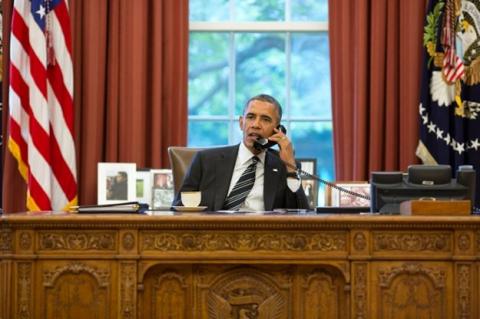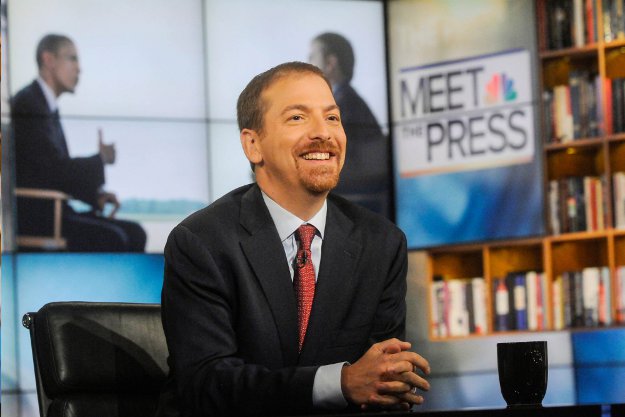New Book by Chuck Todd Analyzes the Obama Presidency

The Stranger: Barack Obama in the White House
By Chuck Todd
Little Brown
528 pages
One future historical analysis of Barack Obama’s presidency might read something like this: The most intellectually gifted politician of his generation takes office facing unprecedented challenges. An economy in freefall, two bitterly fought wars long past their expiration date, and a host of other infrastructural issues—all inherited from a presidential administration that history may yet judge to be the worst in modern times.
Almost immediately, the opposition party embarks on a scorched-earth campaign, as summarized by one of its key leaders: “The single most important thing we want to achieve is for President Obama to be a one-term president.” Rather than collaborate—or even attempt to collaborate—on solving our near-insurmountable problems, the party not in power says no to everything the President asks for and offers no solutions of its own. The result is a crippled government in which nothing gets done for months or years. The soaring hope and change Obama campaigned on never comes to pass.
Elizabeth Drew writing in The New York Review of Books puts it more succinctly: “Even before Obama took office, the Republican leaders began planning ways to obstruct him from achieving his goals by opposing every piece of legislation he proposed. And, lo and behold, by year six the public reacted strongly against ‘gridlock’ in Washington, for which they held the president, the most visible figure and ostensibly the most powerful one, responsible. This jiu-jitsu act performed by the Republicans was breathtaking in its audacity—and its success. Obama wasn’t the only victim of McConnell’s strategy: so was the country.”
In his new book, The Stranger, NBC News Chief White House Correspondent, takes a more nuanced view. Todd attributes at least some of Obama’s lack of legislative achievement to shortcomings in his personal temperament, an unwillingness to wheel and deal with Congress or seek input beyond a tight circle of advisers, as well as an ineffectual management style:
“Where there should have been a clear chain of command, there were official and unofficial hierarchies. Sometimes this meant that voices that would have been excluded were heard, to positive effect. But it also meant a lack of focus and follow-up, with inadequate clarity on who was ultimately responsible—themselves or the other people who seemed to be taking ownership of a decision.”

The Stranger is most insightful when Todd offers well-informed analysis like this. However, too much of the book consists of blow-by-blow accounts of national and international crises of the past six years with little by way of interpretation. From the fight over Obamacare to the BP oil spill, from racial unrest to revelations about the NSA, his description of events isn’t dissimilar to the largely superficial way in which news is covered by the major networks. For a political junkie par excellence like Chuck Todd to rehash issues and controversies more or less as we know they happened feels like a wasted opportunity.
The most compelling sections focus on behind-the-scenes accounts of internal administration power struggles. In the chapter, “The Chief Executive Learns to Manage,” Todd does a great job of describing the revolving doors of White House chiefs of staff, and how their wildly different managerial styles either prodded Obama to take more decisive action or gave him cover to delay making a decision until it was too late.
History may or may not apportion blame for Obama’s shortcomings where so many of us believe it should land – on a criminally negligent previous administration and an obstructionist party motivated purely by self-aggrandizement. Chuck Todd, who’s much closer to the action than the millions who view his reports on NBC Nightly News, arrives at a less ideological conclusion:
“One of the misconceptions of Obama is that he’s not a good compromiser. That’s not true: he compromises all the time; he just seems to get more downside from his compromises than upsides.”
Author Bio:
Lee Polevoi is Highbrow Magazine’s chief book critic.





























































































































































































































































































































